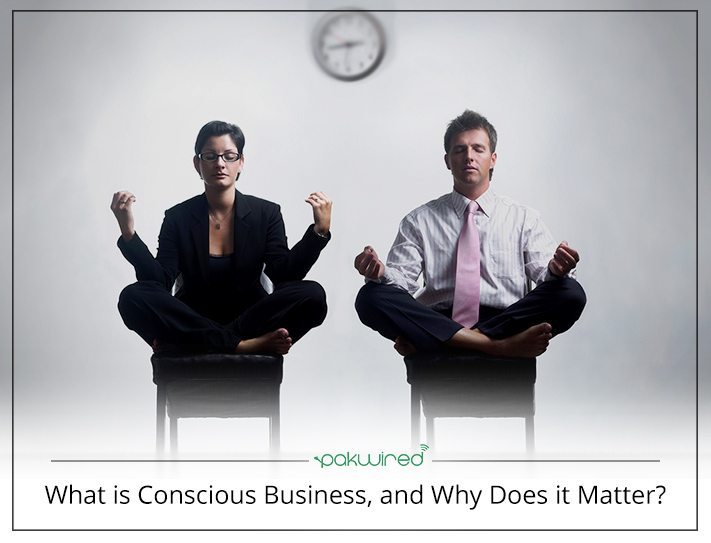Conscious business is as old as commerce, although the term itself is rather new.
Ancient farmers didn’t consider themselves “conscious businessmen” for practicing sustainable agriculture on the banks of the Nile. They were simply doing what worked best for themselves, their community, and the land they worked. The Kellogg company didn’t call itself a “conscious business” for establishing a 30 hour work week, in order to support more families during the Great Depression. They were just doing their part to care for their neighbors in a time of crisis.
It wasn’t until the 1960’s that the theory of Corporate Social Responsibility (CSR) was clearly articulated: that companies are responsible for their impact on the communities and environments in which they operate. That they ought to be guided not just by profits, but by values and principles.
From that general idea, the Conscious Business movement has emerged — and taken that commitment to values and principles to the next level.
What is a Conscious Business?
What makes a conscious business is an attention to all aspects of it’s operations, an awareness of it’s impact on people and the planet, and a commitment to “do no harm” — and indeed, to make a positive impact wherever possible. By replenishing the soil, for example. Or by providing training and employment to underprivileged members of the community.
The rise of the Conscious Business movement largely coincides with the rise of the mindfulness movement, and shares many of the same principles. As people become more aware of themselves, their thoughts and feelings, and their place in the world, they naturally want their work and career to be more in harmony with their values, and their sense of purpose.
Triple Bottom Line
We are used to hearing about the “bottom line.” And we all know what that usually means: money. How can we spend less, and make more? What distinguishes a conscious business is that there isn’t just one bottom line — there’s three:
- People: a conscious business strives to do what’s best for everyone, including employees, customers, suppliers, and members of the local and global community.
- Planet: a conscious business strives for sustainability, minimizing it’s impact on the environment and replenishing ecosystems wherever possible. Examples include: recycling; using recycled materials and sustainable packaging; using green energy; and working with suppliers and distributors who do the same.
- Profit: and of course, as a business, they seek to maximize profits, to ensure healthy return on investment, and to prove that companies can be profitable without compromising their values.
It’s up to each individual company to strike their own balance in these 3 domains. And part of being a conscious business means evolving over time, adapting and incorporating the latest industry developments, and often pioneering new practices that keep them on the cutting edge.
Why Does It Matter?
Environmental activist Peter Barnes once said, “When capitalism started, nature was abundant and capital was scarce… Today we’re awash in capital, and literally running out of nature.”
Since the Industrial Revolution, at least, we have approached the world with an extractivist mentality. We value nature based only on it’s usefulness. We ravage landscapes in order to extract desired commodities, ignoring the intricate web of connections that make up local ecosystems. And now, with carbon emissions already at dangerous levels and still climbing, we are recklessly altering the climate and ecosystem of the entire planet.
These environmental crises — climate change, extreme weather and sea level rise, soil depletion, pollution, ocean acidification, and more — are inseparable from underlying social and cultural issues. Unregulated free trade results in corporate imperialism, and the exploitation of people and resources around the world. Staggering income inequality results in political corruption, unchecked lobbying, and government by the rich, for the rich. And so on.
Conscious business seeks to harness the power of the entrepreneurial spirit, it’s potential for problem solving and innovation, to address these and other pressing issues facing our global society.
If our civilization is to survive and thrive, we must make a tremendous shift in how we think, and live and do business. A shift from extracting wealth to creating value; from competition to cooperation; from exploitation to sharing and caring.
And we’ve got to do it now — before it’s too late.


